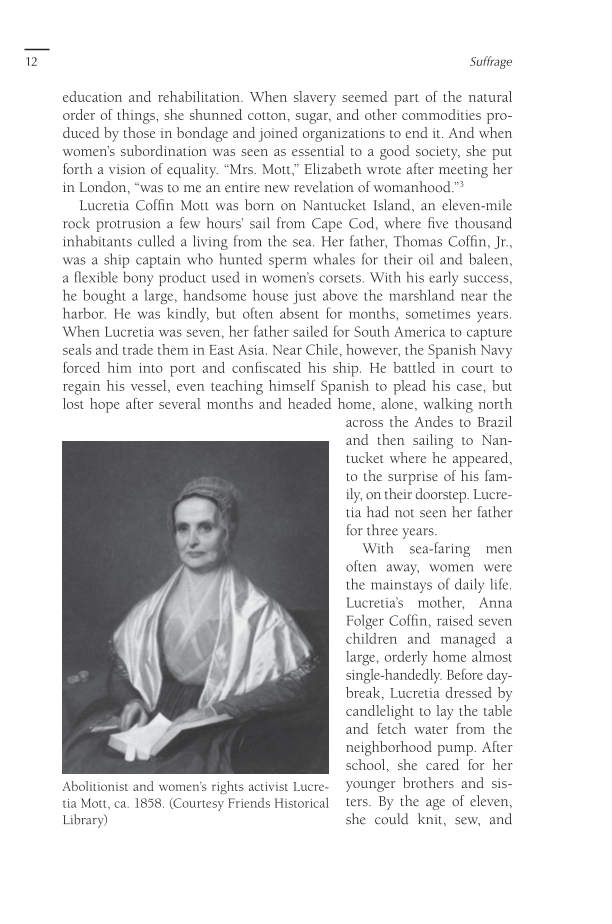12 Suffrage education and rehabilitation. When slavery seemed part of the natural order of things, she shunned cotton, sugar, and other commodities pro- duced by those in bondage and joined organizations to end it. And when women’s subordination was seen as essential to a good society, she put forth a vision of equality. “Mrs. Mott,” Elizabeth wrote after meeting her in London, “was to me an entire new revelation of womanhood.”3 Lucretia Coffin Mott was born on Nantucket Island, an eleven-mile rock protrusion a few hours’ sail from Cape Cod, where five thousand inhabitants culled a living from the sea. Her father, Thomas Coffin, Jr., was a ship captain who hunted sperm whales for their oil and baleen, a flexible bony product used in women’s corsets. With his early success, he bought a large, handsome house just above the marshland near the harbor. He was kindly, but often absent for months, sometimes years. When Lucretia was seven, her father sailed for South America to capture seals and trade them in East Asia. Near Chile, however, the Spanish Navy forced him into port and confiscated his ship. He battled in court to regain his vessel, even teaching himself Spanish to plead his case, but lost hope after several months and headed home, alone, walking north across the Andes to Brazil and then sailing to Nan- tucket where he appeared, to the surprise of his fam- ily, on their doorstep. Lucre- tia had not seen her father for three years. With sea-faring men often away, women were the mainstays of daily life. Lucretia’s mother, Anna Folger Coffin, raised seven children and managed a large, orderly home almost single-handedly. Before day- break, Lucretia dressed by candlelight to lay the table and fetch water from the neighborhood pump. After school, she cared for her younger brothers and sis- ters. By the age of eleven, she could knit, sew, and Abolitionist and women’s rights activist Lucre- tia Mott, ca. 1858. (Courtesy Friends Historical Library)
Document Details My Account Print multiple pages
Print
You have printed 0 times in the last 24 hours.
Your print count will reset on at .
You may print 0 more time(s) before then.
You may print a maximum of 0 pages at a time.














































































































































































































































































































